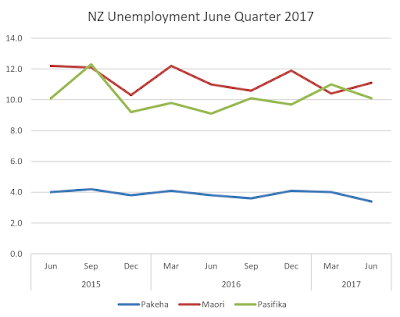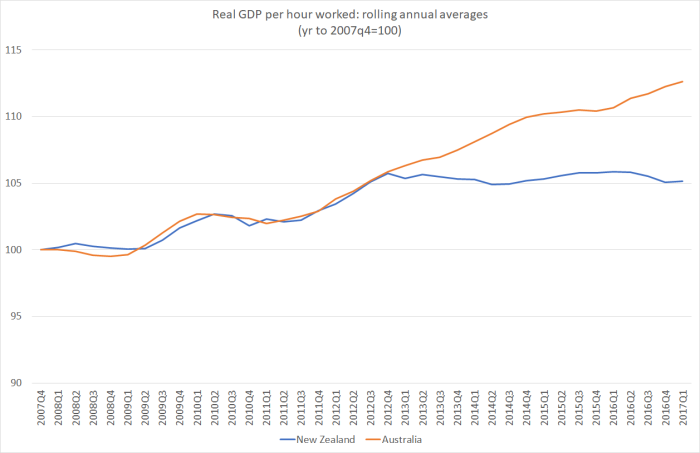Victoria University Maori academics note "a paper prepared for Cabinet proposing the introduction of a freshwater
allocation work programme would breach the Treaty of Waitangi and ignores
recent Waitangi Tribunal and Supreme Court decisions in relation to Māori
rights to freshwater
The
Cabinet paper, dated May, 2016, includes Terms of Reference for a freshwater
allocation work programme that propose three “bottom lines”: 1) “nobody owns
freshwater”, 2) “no national settlement favouring iwi/hapu over other uses” and
3) “Allocation determined catchment by catchment based on resource
availability, efficiency of use, good industry practice and a positive contribution
to regional economic development”.
All
three of these bottom lines would lead to Treaty of Waitangi breaches say Dr
Maria Bargh, a senior lecturer in Te Kawa a Māui – School of Māori Studies at Victoria
University, and Dr Carwyn Jones, a senior lecturer in Victoria’s School of Law.
“First
of all, water is ‘owned’ in Aotearoa,” says Dr Bargh. “It is owned by Māori
according to tikanga Māori, although this ownership is ignored by the Crown at
the same time that the Crown allows other groups, including international
companies, to make an economic profit from trading water.
“Even
under common law, the statement that ‘nobody owns water’ is a gross
oversimplification.”
“The
Waitangi Tribunal,” Dr Jones adds, “acknowledged Māori proprietary rights in
water in 2012, and these need to be acknowledged by the Crown.”
The decision of the Supreme Court
in the NZ Māori Council vs Attorney
General case 2013 indicated that the Crown acknowledged “Māori have rights
and interests in water and geothermal resources” [145] and that these were
being identified and “that
no disposition or creation of property rights in water will be undertaken by
the Crown without first engaging with iwi” [144].
Drs
Bargh and Jones say the proposals for the freshwater allocation work programme
would undermine these Crown reassurances to the Supreme Court.
In
addition they say the “bottom line” proposing a catchment by catchment
assessment needs to also consider the hapū and iwi of those catchments, and the
onus for proving “positive contribution to regional economic development” needs
to be on industry and businesses and supported by robust environmental and
scientific evidence.
The Government has appointed a technical advisory group with terms of
reference derived from the Cabinet paper to advise on the impact of the
proposed options."
For more information
contact Dr Maria Bargh on 021-025 06003 or Dr Carwyn Jones on 021 665 287













